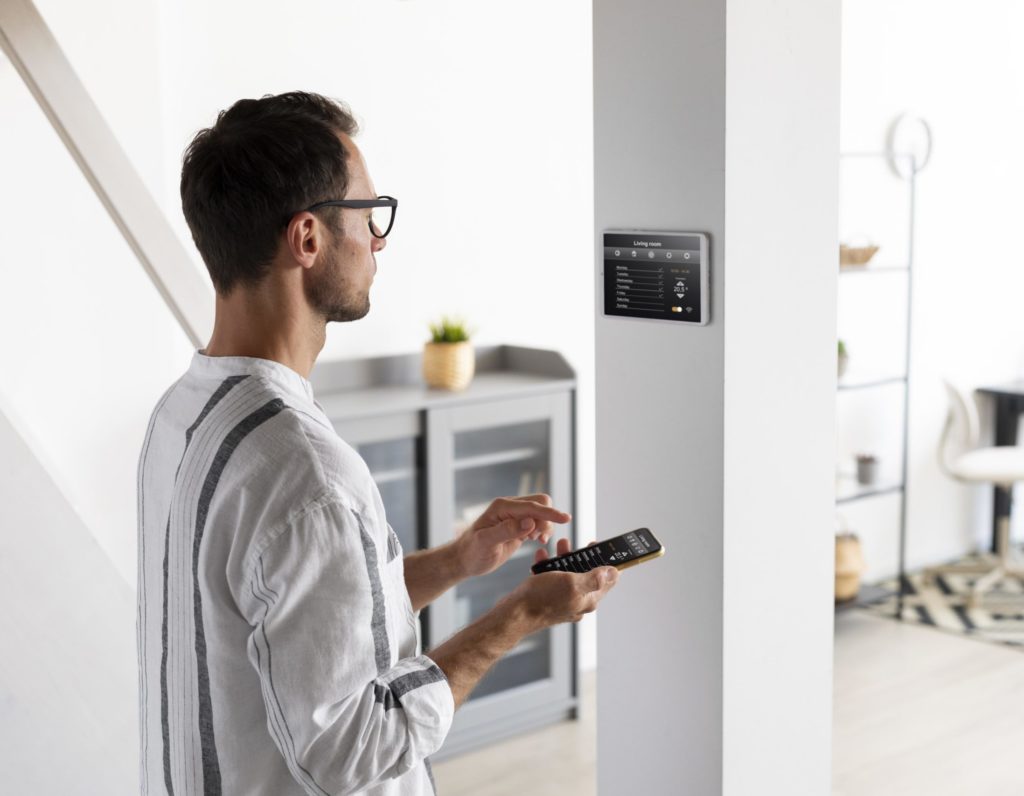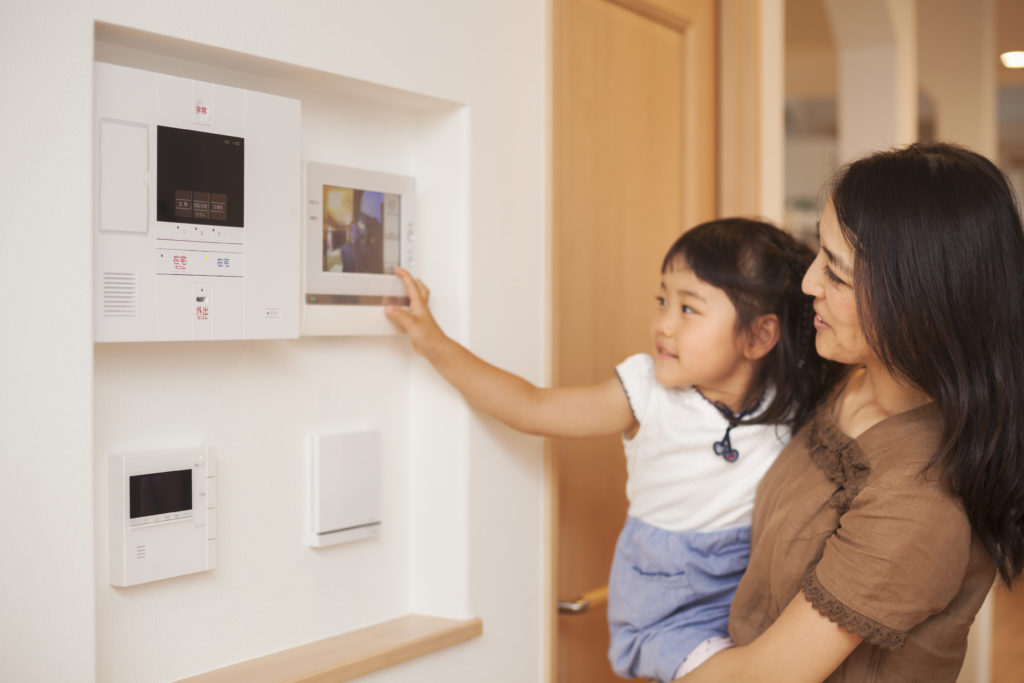
Guide
Best Home Security Systems Guide 2024
If you’re in the market for home security, we’ve made it easy for you to learn about the best security systems available.
Smarterhome.org may earn a commission when you click on our affiliate links and this may impact the placement of listings. Learn more.

Verified
*Requires 36-month monitoring contract. Early termination and installation fees apply. New customers only. Full Terms.
When you’re considering purchasing a home security system, one of the first things you want to know is how do home security systems work. Do they all operate the same way? Are there different types of systems? And how do you choose the right one for your needs? Learn about the key components of a home security system and how they work to protect what you value most at home.
The basics of most home security systems are pretty simple. They include a control panel, sensors, and an alarm. The control panel is usually located in a central part of the home and is the “brains” of the operation. Sensors are placed throughout the house and detect when a door or window has been opened. When an entry point is opened, the sensor signals the control panel, which activates the alarm if the system is armed. The alarm can be a loud siren, a flashing light, or both. The point of the alarm is to scare off intruders and alert homeowners to the attempted break-in. But do home security systems actually work? Yes! In fact, complete home security systems offer multiple types of products to keep your home, family, and valuables safe
Nowadays, there are many home security systems available to meet your needs and budget. Whether you live in a house or an apartment, you can purchase a security system and additional products for optimal protection. Here are the most common components of a home security system to answer, how do home security systems actually work?
To control all of your security products from one location in your home.
To place on windows and doors to detect movement or a break-in.
To emit noise and light when a break-in is detected.
To turn on when someone steps onto your property to deter criminals.
To see what is happening inside your home at all times, often with live and recorded video footage and one or two-way audio.
To watch your property even when you’re not home and record any suspicious activity.
To see and talk to someone at your front door, even when you’re not home.
To add a layer of protection to home security that alerts you of fire or leaks.
To increase home security and convenience with smart locks, smart lighting, voice-activated controls, and more.
To monitor and control your system from your phone and view camera footage from anywhere.
To have peace of mind that someone is always keeping a watchful eye on your home and can alert the authorities in case of an emergency.

Home security systems have come a long way in recent years. In the past, hardwired systems were the only option, which required putting holes in walls and running wires throughout your home. Today, wireless systems are much more popular because they’re easier to install and less obtrusive. This is typically a better choice for those renting their home or apartment or those who plan on moving soon. But how does wireless home security work?
Wireless security systems rely on a network of sensors to detect intruders. These sensors are usually placed around doors and windows, and they detect changes in electromagnetic fields. When an intruder breaks into a home or business, the sensors use radio waves to send a signal to the control panel, which sounds an alarm. Most wireless security systems also have backup batteries that keep the equipment running in a power outage.
There’s no doubt that home security systems provide peace of mind. After all, it’s comforting to know that your home and belongings are protected 24/7. But do home security systems really work? The answer is a resounding yes! Home security systems deter burglars and help to catch them in the act. And if a break-in does occur, security systems make it more likely that the police will catch the burglar by using security camera footage to identify and apprehend the culprit. Ready to invest in a security system for your home? Compare the top companies and products today!

Guide

Blog

Blog
Smarter Home was created to help you make an informed decision when choosing a home security system.
Powered by Soleo Communications, Inc. 2024. All rights reserved.
Requires 36-month monitoring contract starting at $38.99/mo. without QSP (24-month monitoring contract in California, total fees from $935.76) and minimum installation amount of $599 for professionally installed systems OR month-to-month monitoring contract for ADT Self Setup systems starting at $24.99 without QSP (one month minimum) and minimum purchase amount of $194.98. Professional monitoring required for ADT to notify emergency contacts or services on your behalf. Service and installation charges vary depending on system configuration, equipment and services selected. For reactivations of professionally installed systems, a $99 test and inspect fee applies . Upon early termination by Customer, ADT may charge 75% of the monthly service charges due for the balance of the initial contract term. Quality Service Plan (QSP) is ADT’s Extended Limited Warranty and is available for additional fee. Additional charges may apply in areas that require guard response service for municipal alarm verification. Professionally installed system remains property of ADT. Local permit fees may be required. Prices and offers subject to change and may vary by market. Additional taxes and fees may apply. Satisfactory credit required. A security deposit may be required. Simulated screen images and photos are for illustrative purposes only. For Self-Setup Systems, cancel by calling 888-392-2039 or by following the instructions in your order confirmation email. To avoid contract termination charges, cancellation must occur no later than 30 days after the contract date. Contract termination charges may be applied for cancellation after the initial 30-day period. Equipment must be fully removed and returned before a refund will be processed. Any shipping costs previously paid are non-refundable. Google and Nest Doorbell are trademarks of Google LLC. Some features, including mobile notifications, remote control, video streaming and video recording, require working internet and Wi-Fi. Minimum OS requirements are available at g.co/home/req. iOS is a trademark of Cisco and is used under license. Google Nest products and services featured are designed to make life easier and to build a helpful home and were not designed specifically for life-sustaining or safety-critical use cases. These products and services are compatible with the ADT Self Setup System, and depend upon working internet, Wi-Fi, and, in some cases, the service availability from ADT and/or Google. To learn more, please visit http://g.co/nest/TOS.
Money-back guarantee only applies after ADT has made attempts to resolve a system-related issue and has not been able to resolve that issue within the first six (6) months of your original activation. ADT Money-Back Guarantee is not transferable. Equipment must be returned before a refund will be processed. Conditions preventing normal system operation cannot be caused by the customer. For professionally installed systems only.
Customer may receive reimbursement of up to five hundred dollars ($500) of Customer’s homeowner’s insurance deductible (if any) if, and only if, ALL requirements for Theft Protection Guarantee are met to ADT’s reasonable satisfaction. Customer must request reimbursement within 60 days of property loss. Request must be mailed to ADT and include: Theft Protection Guarantee certificate signed by Customer, a letter from Customer requesting reimbursement, a copy of the police report, and a copy of the accepted insurance claim. ADT reserves the right to reject any application for reimbursement that does not comply with all of the requirements. For professionally installed systems only.